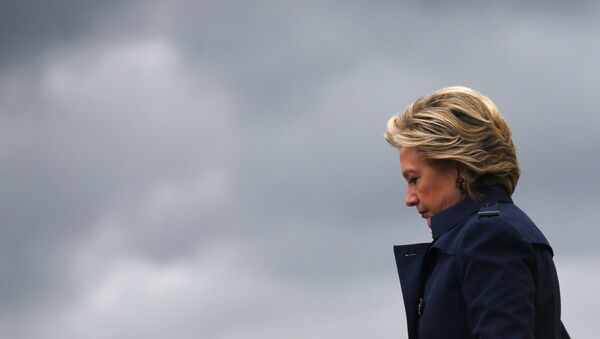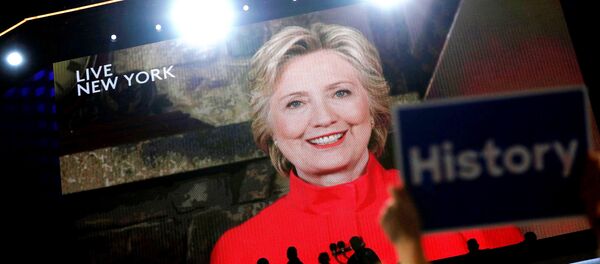The laptop had been previously investigated in an unrelated case involving Wiener, the husband of top Clinton aide Huma Abedin, sending sexually-explicit messages to a 15-year-old girl.
— Mike Hayes (@michaelhayes) December 20, 2016
Abedin had also used the laptop, and emails from Clinton’s time as US Secretary of State were reportedly found on the hard drive.
The 21-page search warrant is heavily redacted, but mentions Clinton by name.
In the probable cause section, the warrant states, “given the information indicating that there are thousands of [redacted] emails located on the Subject Laptop — including emails, during and around [redacted] from [redacted] account as well as [redacted] account appearing to belong to [redacted] and the regular email correspondence between [redacted] and Clinton, there is probable cause to believe that the Subject Laptop contains correspondence between [redacted] and Clinton [redacted]. Because it has been determined by relevant original classification authorities that many emails were exchanged between [redacted] using [redacted] and/or [redacted] accounts, and Clinton that contain classified information, there is also probable cause to believe that the correspondence between them located on the Subject Laptop contains classified information which was produced by and is owned by the US Government. The Subject Laptop was never authorized for the storage or transmission of classified or national defense information.”
The warrant also states, “a complete forensic analysis and review of the Subject Laptop will also allow the FBI to determine if there is any evidence of computer intrusions into the Subject Laptop, and to determine if classified information was accessed by unauthorized users or transferred to any other unauthorized systems.”
— Brad Heath (@bradheath) December 20, 2016
On November 6, just days before the election, Comey announced that the FBI had “not changed our conclusions” in not recommending that charges against Clinton.
The attorney fighting for the records to be unsealed, E. Randol Schoenberg, told ABC News that for the FBI to receive a search warrant, "that meant that some judge thought there was 'probable cause' to believe that an actual crime had been committed and that they would find evidence of the crime on the laptop." He explained that he wanted to know what exactly the probable cause was.



